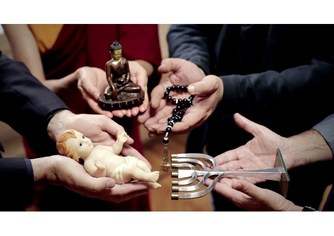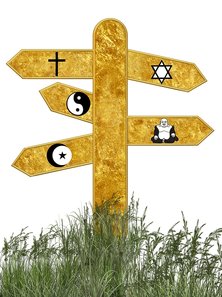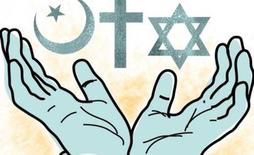
The person involved in this particular situation was Tim Farron. He had been harassed over whether he thought homosexual sex a sin, even though he had voted in favour of gay marriage. It was obvious that his views had not affected the way he voted. Was this a lack of integrity on his part? Was it an intrusion of privacy for someone to pursue a public figure about their personal beliefs? Need an individual’s personal beliefs interfere in good governance? Why did people feel free to ask such a question rather than a question about how one would vote? Was this, as Mr Farron suggested, an intolerance of religion or did it betray a fear, not of the beliefs themselves but of the imposition of them on society at large. Do we carry in our DNA a memory of persecution of those who were different, of moral and religious stances being outlawed and leading to imprisonment and persecution? Is it possible to believe in one’s heart that something is wrong – doesn’t quite come up to the mark (which is one explanation of sin) - but that equality, justice, respect for different views, living together in a secular society could lead one to legislate for a more open approach and not demand that one’s own moral views become law. Were his detractors worried about Tim Farron’s belief about God, an afterlife, salvation or any of the religious doctrines that religious people might espouse? Do these not matter because they make no impact on a person’s ability to legislate? Should the focus be on a person’s values rather than their particular moral stance? Is it a fear of being dictated to that upsets people?
This difficulty of being religious also came up in evidence given to the Scottish Parliament’s Equality and Human Rights Committee recently. It was given by the Scottish Churches Parliamentary Officer who suggested that for Catholics “a culture of fear prevents people from being open about their faith.” I must say this is not my experience but I have heard young people who are committed Christians saying that their friends and colleagues think they are rather odd and unusual being religious. It’s just not understood. However the Parliamentary Officer, Anthony Horan said “ my overriding concern is the culture of fear that runs right through society and which makes people feel at best uncomfortable and at worst totally frightened to be open about their faith” In all my work in interfaith I have not encountered this though international tensions and terrorism mean that people who are ostensibly religious are often targeted. The hatred in this instance is perhaps because of religion’s association with violence. There is also in Scotland a violent and intolerant approach to religion because of the rivalry between two particular football teams but that’s more tribal than religious. Mr Horan supported his claim by providing testimonies from a number of young people who had experienced anti-Catholic prejudice in their school, most of it relating to the Church’s teaching on abortion and marriage. Note that this prejudice took place within a Catholic school so presumably it came from other Catholics and shows there can be an intolerance of different views even within faith communities.
So what is at the heart of this intolerance? Is it fear of having a particular view and way of life imposed on us by others? Is it our inability to live with difference? Is it a refusal to believe that we are all struggling to find truth and might have different perspective on it? Might it be that if we explored the reasons why we hold certain views we might find we are closer than we think? Religion responds in different ways to this uncertainty, this sense of insecurity. Some people will be committed to interreligious dialogue and working together, others will be inclined to fight those they see as imposing an alien way of life – and then impose their own way of life as ISIS seems to be doing, others will put up their defences and try to establish a strong identity - always in danger of being closed, setting people apart from others. Others will just reject the whole idea of religion and either set it aside as irrelevant or work to keep it out of the public square.
We’re not very good at living with difference. In Europe, and certainly in Scotland, we acknowledge that we’re moving towards a secular society but we haven’t yet learned how to do this peacefully. We need to learn how to allow people to express their views honestly, to respect those who are different from us and to create a society in which people can witness to their faiths with confidence and respect.




 RSS Feed
RSS Feed
